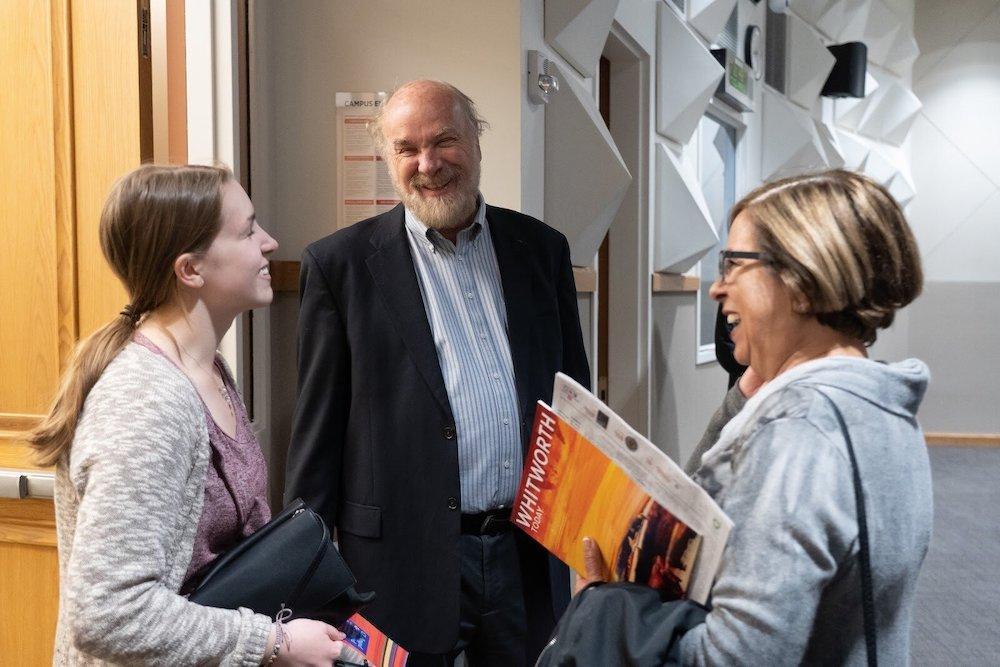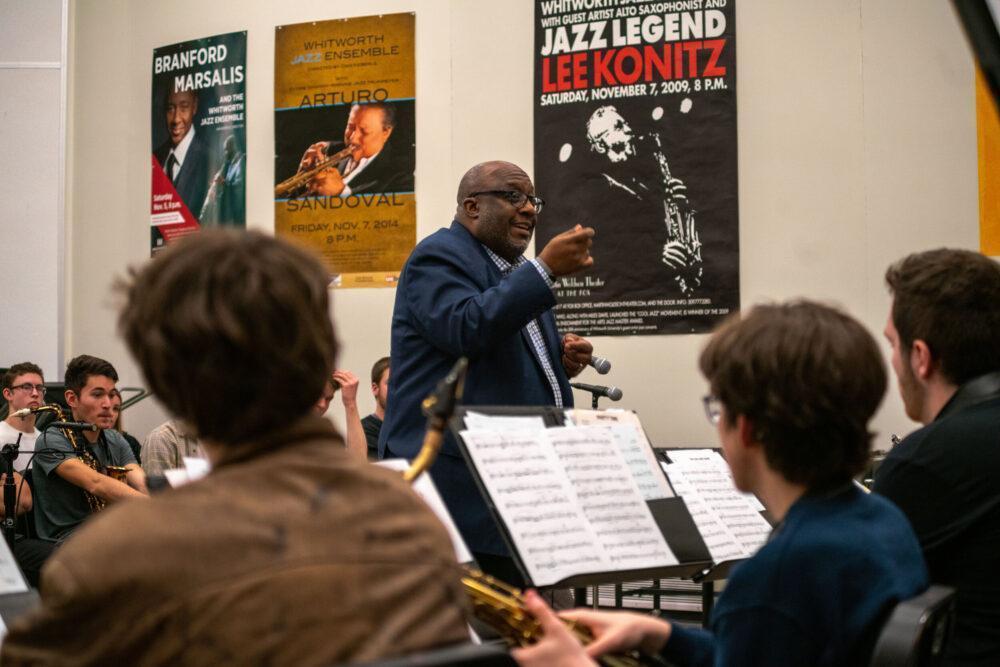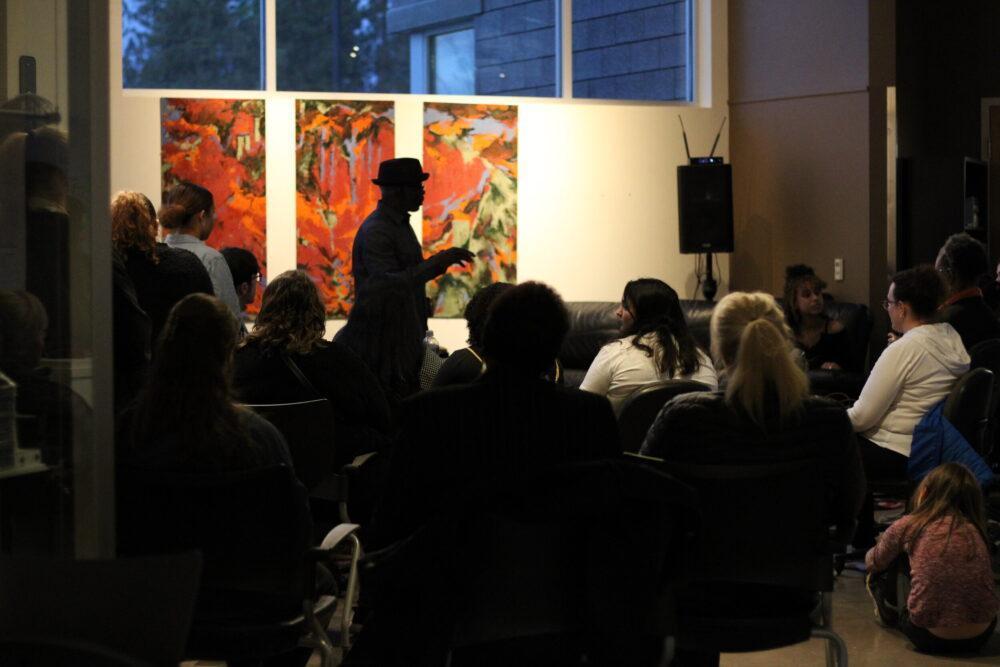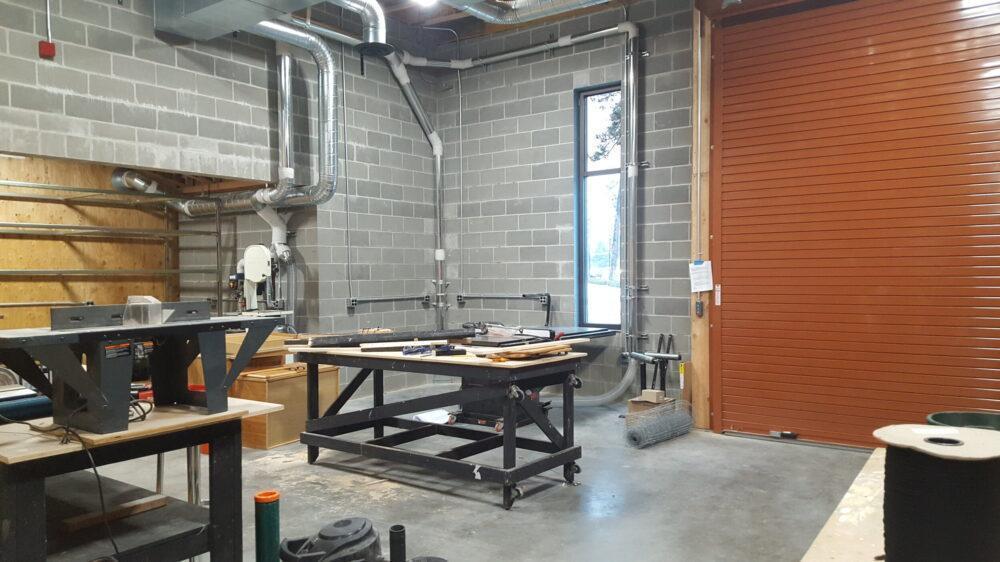
For the last four years, biology professor Aaron Putzke has taught students in his molecular genetics course how to brew beer on Whitworth’s dry campus. The project is a chance for students to learn about the science and process of microbrewing as well as ethical and socially responsible practices of drinking. The class is made up of seniors, and Putzke always checks the students’ IDs before letting them take home a bottle of their creation.
“We’re not making beer to just make beer,” Putzke said. Microbrewing is a “fun and educational” way to teach students the skill and science behind beer, he said.
Following the Big Three policies, students are not allowed to taste the beer on campus. They get to keep one bottle at the end of the course but must take it off campus, Putzke said. If a student violates this rule, the program will stop.
The Big Three is an important part of Whitworth’s culture, but students still need to be educated about the issues, Putzke said. In addition to teaching genetics, this course does not promote drinking but gives students a chance to learn, talk, and think ethically about alcohol, he said.
When Putzke first presented the idea to administration, they were in support of it. Provost and Executive Vice President Caroline Simon said, “Dr. Putzke’s (Spring) Term course helps students understand the multidisciplinary nature of the science involved in brewing. He has created valuable academic learning opportunities and conducts the course in ways that respect the university’s mission and policies.”
The brewing project has been collaborative. Beyond the Pines, Whitworth’s student-run public relations agency, worked with Putzke to design labels for the bottles. Putzke is also working with grounds manager Brandon Pyle to grow everything on campus in the future.
“You want your product to tell a story,” said Erica Salkin, communication professor. The goal of Beyond the Pines’ work was defining a message for the beer and giving it a distinctive look. At the end of the semester, the team that helped with his assignment was most proud of that work, she said.
Putzke’s project is a comprehensive process grounded in the liberal arts, Salkin said. Students learned how to both create beer and brand it. Now, those students have a larger world of interaction because when they see beer, they’ll know how it’s made and think about what drew them to the bottle’s design, she said.
The class makes four styles of beer: India pale ale, amber, stout and hefeweizen. Each of the beers are named after something Whitworth-related: NeckBeard IPA, Twisted Hawthorne amber, Windstorm stout and Upper Left hefeweizen.
Putzke dreams about expanding the course to a program for people interested in craft brewing. The program would be liberal arts-based, training students about brewing, business strategies, marketing, media and law. It would also expose them to topics like addiction and social responsibility with alcohol, he said.
“It’s fun to dream about that sort of a thing, but I try to be really sensitive to the culture of Whitworth,” Putzke said. “There would have to be some really important conversations with the campus, certainly with the administration and the board of trustees (as well as faculty and students) about that kind of a thing.” It would take a couple of years to have the conversation and design the program, he said.
In the Pacific Northwest, microbrewing has become increasingly popular, with more than 200 local brews and 24 breweries in Spokane and Kootenai counties, according to data by the Spokesman Review from the 2017 Spokane Craft Beer Week.
People like high-quality beers, Putzke said. One step that makes a beer higher quality is locally sourcing the ingredients. Putzke and his students are in the testing phase of growing all the ingredients themselves. They currently cultivate six varieties of hops from Yakima and perennial wheat from Walla Walla. Two students recently donated a bucketful of annual wheat from their farm, and biology professor Lee Anne Chaney donated apple trees to be used for cider in the future. Putzke is also curious about getting male hops from Oregon State University to experiment with hop breeding. This would be up to an eight-year-long genetics project that would allow lots of student exposure and involvement, he said.














 Spokane?
Spokane?